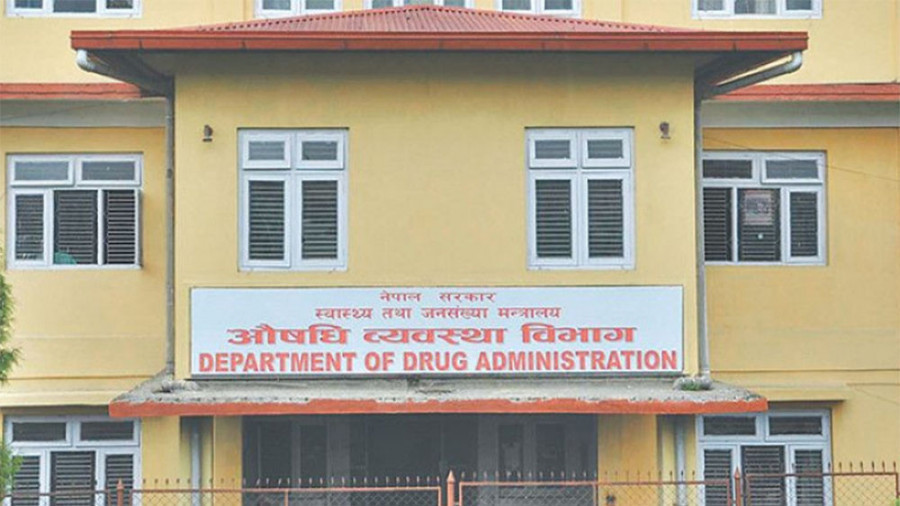Health
Different drugs, identical names. Nepal’s regulatory body is clueless
The drug regulator often recalls drugs when they are sold out or are close to expiry.
Arjun Poudel
An Indian pilgrim in his mid-40s, who came from South India to visit the Pashupatinath temple during the Mahashivaratri, reached the emergency department of Bir Hospital complaining of stomach ache.
Doctors at the hospital prescribed Diavol, a medicine that prevents stomach upset, and asked the patient to take it when he experiences a burning sensation. The pharmacist, however, gave the patient Daonil, an antidiabetic medication.
The patient took the tablet on an empty stomach and visited Patan’s Krishna Mandir. When the pain did not subside, he took additional tablets within a short period. This lowered his blood sugar level.
“The patient was brought to the hospital in an unconscious state,” said Dr Baburam Marasini, a retired health official. “Due to the sheer negligence of the pharmacist, the patient died.”
This incident occurred some 40 years ago when Marasini served at Bir Hospital. Public health experts say what concerns them is there has not been much improvement in the situation even after so long.
A few days ago, two medicines, manufactured by two companies, one by Torrent Pharmaceuticals Ltd India and the other by Grace Pharmaceuticals Pvt Ltd, Rupandehi were found to come in the same brand name—“Rovor 20.”
The medicine manufactured by the Indian company are Rivaroxaban tablets, an anticoagulant or blood thinner, while the medicine manufactured by the Nepali company is Rabeprazole, which is used in treating duodenal ulcers, gastroesophageal reflux diseases and the condition in which the stomach produces too much acid.
The Department of Drug Administration, the national regulatory body of the drug market, however, said that it is unaware of the availability of two entirely different drugs in the same brand name in the country.
Issuing a statement on Tuesday, the department said that it has only registered the tablet Rovor-10 (Rivaroxaban-20mg) manufactured by Torrent Pharmaceuticals Ltd India. The department said it has annulled the brand name and named it Tablet Rivitor-10, as per its December 10, 2023 decision.
The department said tablet Rovor-20 has not been registered with the department and has recalled tablet Tovor-10 (Rivaroxaban-10 mg) from the market.
“Two entirely different medicines that are used for different purposes have identical brand names. Shouldn’t the DDA be responsible in such a case? Can anyone do anything in Nepal?” Dr Ahamad Raza Miya wrote on his X account. “Sometimes it [the DDA] issues orders to recall drugs when they get close to expiry and sometimes it allows the production of two entirely different medicines in the same brand name.”
DDA officials said they were unaware of the presence of the two medicines with the same brand name on the market.
“The medicines, which are not registered in Nepal, might have been smuggled into the country,” said Narayan Dhakal, director general at the department. “We have asked our inspectors to monitor illegally imported drugs.”
However, officials at the department said that manpower shortage made it impossible to inspect more than 20,000 dispensaries in the country.
Dhakal concedes that the registration of entirely different medicines in the same brand name could be due to the lack of a proper database at the department.
“Computers too cannot differentiate the same medicine when the manufacturers use commas and other marks in their brands,” said Dhakal.
The department keeps recalling the substandard drugs from the market but most of the time when most of the stock sells out or is close to expiry.
The regulatory agency regularly collects drugs through random sampling from pharmacies across the country and tests them for quality in its own laboratory.
The department reported that around 11 percent of the medicines sold in the last fiscal year across the country were found substandard in laboratory examinations. Officials had directed their manufacturers to recall those drugs from the market.
However, it is not known if all those substandard drugs were recalled or sold to patients, as the department has no capacity to follow through on that. DDA officials admit that due to understaffing, they cannot always monitor if all such drugs are recalled.
The department publishes a notice on its website asking respective companies to recall the drugs found to be substandard at the earliest. But most often, those substandard drugs get sold out by the time the notice is published, as the department takes months to perform laboratory tests.




 17.56°C Kathmandu
17.56°C Kathmandu















